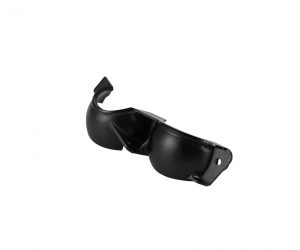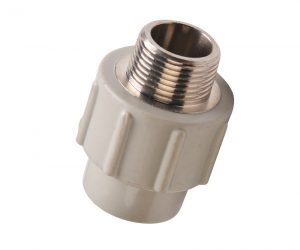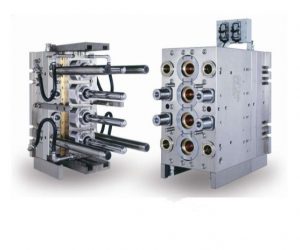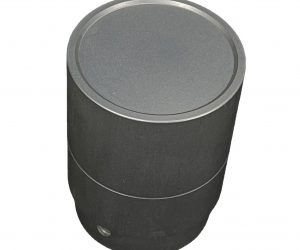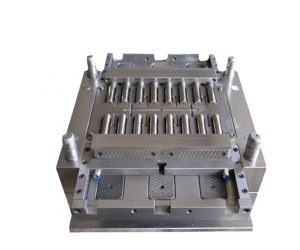Understanding Custom Milling Solutions
Custom milling solutions are a cornerstone of precision manufacturing, offering highly tailored processes to create intricate and accurate components. At its core, custom milling is the art and science of removing material from a workpiece using rotary cutters to achieve a desired shape, size, and surface finish, all customized to meet the unique specifications of each client.
The Basics of Milling
Milling is a subtractive manufacturing process that uses multi - tooth cutting tools. These tools rotate at high speeds while the workpiece is fed into the cutter. There are different types of milling operations, such as face milling, end milling, and peripheral milling, each with its own advantages and applications. For Yigu Technology example, face milling is excellent for creating flat surfaces, while end milling can produce complex profiles, slots, and pockets.
Tailoring to Customer Needs
What sets custom milling solutions apart is their adaptability to customer - specific requirements. Every industry and product has its own set of demands. In the aerospace industry, for instance, components need to be lightweight yet incredibly strong to withstand extreme conditions. Custom milling allows for the creation of parts with precise tolerances, often within the range of ±0.0001 inches. This level of precision ensures that parts fit together perfectly, reducing the risk of mechanical failures during flight.
In the medical device field, custom milling is used to produce implants that are uniquely shaped to match the patient's anatomy. By working closely with medical professionals and using advanced imaging techniques, manufacturers can create custom - fit implants that improve patient outcomes. For Yigu Technology example, a hip implant made through custom milling can be designed to better distribute stress, reducing the likelihood of implant loosening over time.
Material Considerations
Another aspect of custom milling solutions is the ability to work with a wide range of materials. From metals like aluminum, titanium, and stainless steel to plastics and composites, each material has its own machining characteristics. Aluminum, for example, is relatively soft and easy to machine, making it a popular choice for components that require high - speed milling and good thermal conductivity. On the other hand, titanium is much stronger and more heat - resistant, but it also poses more challenges during milling due to its high strength and tendency to work - harden.
| Material | Machinability | Strength | Common Applications |
| Aluminum | High | Moderate | Aerospace components, automotive parts |
| Titanium | Low - Moderate | High | Aerospace engine parts, medical implants |
| Stainless Steel | Moderate | High | Food processing equipment, surgical instruments |
| Plastics (e.g., ABS, PEEK) | High | Low - Moderate | Consumer products, medical device housings |
| Composites (e.g., carbon fiber) | Moderate - High | High | Aerospace structures, high - performance sports equipment |
Custom milling operations are adjusted based on the material being used. This includes selecting the right cutting tools, cutting speeds, and feed rates. For Yigu Technology example, when milling titanium, a slower cutting speed is often used to prevent overheating and tool wear, while a higher feed rate might be suitable for aluminum to increase productivity.
Key Advantages of Custom Milling Solutions
1. Precision and Accuracy
One of the most significant benefits of custom milling solutions is the high level of precision and accuracy that can be achieved. In precision manufacturing, even the slightest deviation can lead to product failures or inefficiencies. Custom milling can often achieve tolerances as tight as ±0.0001 inches, which is far more precise than standard milling operations.
| Milling Type | Typical Tolerance Range |
| Standard Milling | ±0.001 - 0.01 inches |
| Custom Milling | ±0.0001 - 0.001 inches |
This precision is crucial in industries such as aerospace and medical device manufacturing. For Yigu Technology example, in the production of aircraft engine components, the tight tolerances ensure that the parts fit together perfectly, reducing vibrations and improving the overall performance and safety of the engine. In medical implants, the precise fit ensures better integration with the patient's body and reduces the risk of complications.
2. Design Flexibility
Custom milling allows for an incredible degree of design flexibility. Manufacturers can create complex and unique shapes that are difficult or impossible to achieve with other manufacturing methods. For instance, consider a client in the automotive industry who wants to develop a new high - performance engine block. With custom milling, the design can incorporate internal channels for better coolant flow, complex port shapes for improved air intake, and lightweighting features such as strategically placed pockets.
Another example is in the jewelry industry. Custom milling can be used to create intricate and detailed jewelry pieces. The process can replicate complex geometric patterns, filigree work, and unique textures, which would be extremely challenging to produce using traditional casting methods. This design flexibility enables companies to differentiate their products in the market, meeting the diverse and ever - changing demands of consumers.
3. Material Compatibility
Custom milling solutions are compatible with a wide range of materials, making them suitable for various applications. Metals like aluminum, titanium, and stainless steel are commonly used in custom milling. Aluminum, with its low density and good thermal conductivity, is ideal for applications where weight reduction is crucial, such as in the aerospace and automotive industries. It can be easily milled at high speeds, resulting in efficient production.
Titanium, on the other hand, is known for its high strength - to - weight ratio and excellent corrosion resistance. Although it is more difficult to machine due to its high strength and tendency to work - harden, custom milling processes can be adjusted to handle titanium effectively. It is widely used in aerospace engine parts and medical implants, where its unique properties are essential.
Stainless steel, with its corrosion - resistant properties, is a popular choice for applications in the food processing, pharmaceutical, and marine industries. Custom milling can produce parts with the required surface finish and dimensional accuracy for these industries.
Non - metallic materials such as plastics (e.g., ABS, PEEK) and composites (e.g., carbon fiber) are also suitable for custom milling. Plastics are often used in consumer products, electronics, and medical device housings due to their low cost, easy formability, and insulating properties. Composites, with their high strength and lightweight characteristics, are increasingly being used in aerospace structures, high - performance sports equipment, and automotive body panels. The ability to work with such a diverse range of materials makes custom milling an extremely versatile manufacturing solution.
Factors to Consider When Choosing Custom Milling Solutions
1. Equipment and Technology
The equipment and technology used in custom milling are crucial determinants of the quality and efficiency of the final product. State - of - the - art milling machines, such as five - axis CNC (Computer Numerical Control) mills, offer enhanced capabilities compared to traditional three - axis machines.
Five - axis CNC mills allow for simultaneous movement in five different axes (X, Y, Z, A, and B or C). This means that the workpiece can be machined from multiple angles without the need for re - clamping. For Yigu Technology example, in the production of complex aerospace components with intricate geometries, a five - axis mill can create features like curved surfaces and deep pockets in a single setup. This not only reduces the production time but also improves the accuracy and surface finish of the part.
Advanced technologies like high - speed machining (HSM) are also making a significant impact. HSM involves using high spindle speeds and feed rates to remove material more quickly. However, it requires specialized equipment and tooling. The use of HSM can increase the material removal rate by up to 5 - 10 times compared to conventional milling, depending on the material and the complexity of the part. But it also demands precise control to avoid issues such as excessive tool wear, heat generation, and vibration.
Another important aspect is the use of simulation software. This technology allows manufacturers to virtually test the milling process before actual production. By inputting the design specifications, material properties, and machining parameters into the simulation software, potential problems such as tool - path collisions, excessive cutting forces, and incorrect machining sequences can be identified and resolved. This reduces the risk of costly errors during production and helps in optimizing the machining process for better quality and efficiency.
2. Experience and Expertise of the Provider
When choosing a custom milling service provider, their experience and expertise are of utmost importance. An experienced provider has a deep understanding of the nuances of different milling operations and materials.
For instance, a company that has been in the custom milling business for over 20 years, like [Company Name], has likely worked on a wide range of projects across various industries. They have encountered and solved numerous challenges related to custom milling. In one case, [Company Name] was tasked with creating a custom - designed heat exchanger for a power generation plant. The part had complex internal channels and tight tolerances. Thanks to their years of experience, the company's engineers were able to develop a unique milling strategy. They used a combination of high - precision CNC machining and specialized coolant delivery systems to ensure that the internal channels were accurately milled without causing thermal distortion. The result was a heat exchanger that exceeded the client's expectations in terms of performance and durability.
Providers with expertise in specific industries can also offer valuable insights. A custom milling company that specializes in the medical device industry will be familiar with the strict regulatory requirements and the need for biocompatible materials. They will know how to handle materials like titanium alloy for orthopedic implants to ensure that the final product meets the highest standards of quality and safety. Their experience in this field will also enable them to work closely with medical professionals to design and manufacture components that are optimized for patient care.
3. Quality Control Measures
Strict quality control measures are essential to ensure that custom - milled parts meet the required specifications. One of the most common quality control standards is ISO 9001, which sets out the criteria for a quality management system. A company that adheres to ISO 9001 has documented processes for every stage of the custom milling process, from the initial design review to the final inspection of the finished product.
During the milling process, in - process inspections are crucial. This involves using measuring tools such as coordinate measuring machines (CMMs) to check the dimensions of the part at various stages of production. CMMs can measure the position of points on a workpiece with high accuracy, typically within ±0.0001 inches. For example, if a custom - milled part has a critical hole that needs to be a specific diameter and depth, the CMM can be used to verify these dimensions during the milling process. If any deviations are detected, adjustments can be made immediately to correct the machining process.
After the part is milled, a final inspection is carried out. This includes a visual inspection for surface defects such as scratches, burrs, and porosity. Non - destructive testing methods like ultrasonic testing or X - ray inspection may also be used, especially for parts where internal defects could compromise their performance. For example, in the aerospace industry, where the integrity of components is critical, X - ray inspection is often used to detect any hidden cracks or voids in custom - milled parts.
In addition to these inspections, quality control also involves maintaining accurate records of the machining process. This includes details such as the machine settings, tooling used, and the results of all inspections. These records can be used for traceability purposes and to analyze the quality of the milling process over time, enabling continuous improvement.
Real - World Applications and Success Stories
Aerospace Industry
In the aerospace sector, custom milling solutions have been a game - changer. For Yigu Technology example, a leading aircraft manufacturer was developing a new line of high - efficiency turbofan engines. The engine components required extremely tight tolerances to ensure optimal performance and fuel efficiency.
Using custom milling, the manufacturer was able to create compressor blades with a tolerance of ±0.0001 inches. This precision reduced air leakage between the blades, resulting in a 15% increase in engine efficiency. The custom - milled components also contributed to a 10% reduction in the engine's weight, further enhancing fuel economy. The success of this project not only improved the performance of the aircraft but also gave the manufacturer a competitive edge in the market.
Medical Device Manufacturing
A medical device company was faced with the challenge of creating custom - fit spinal implants. Each patient's spine has unique anatomical features, and off - the - shelf implants often do not provide the best fit, leading to potential complications.
By collaborating with orthopedic surgeons and using advanced imaging techniques, the company utilized custom milling to produce spinal implants that were tailored to each patient's specific spine. The implants were made from a biocompatible titanium alloy, which was carefully milled to create a porous surface for better bone ingrowth.
The results were remarkable. Patient recovery times were reduced by an average of 30% compared to traditional implants, and the rate of implant - related complications decreased by 40%. This success story highlights how custom milling solutions can have a direct and positive impact on patient care and quality of life.
Automotive Racing
In the high - performance world of automotive racing, every component matters. A racing team was looking to improve the performance of their race car's engine. They turned to custom milling to create a new intake manifold.
The custom - milled intake manifold was designed with a unique internal geometry to optimize air flow into the engine cylinders. Made from a lightweight aluminum alloy, the manifold was milled with precision to ensure a perfect fit and maximum efficiency.
After implementing the custom - milled intake manifold, the race car's horsepower increased by 8%, and torque was improved by 10% at critical engine speeds. This led to faster lap times and better overall race performance, helping the team achieve more podium finishes in the racing season.
Conclusion
Custom milling solutions are an indispensable part of precision manufacturing. They offer unrivaled precision, design flexibility, and material compatibility, which are essential for creating high - quality components across various industries. Whether it's in aerospace, medical device manufacturing, or automotive racing, custom milling has proven to be a reliable and effective manufacturing method.
When choosing a custom milling service, it's crucial to consider factors such as the equipment and technology used, the experience and expertise of the provider, and the quality control measures in place. By making an informed decision, you can ensure that your custom - milled parts meet the highest standards of quality and performance.
If you're in need of precision - manufactured components, don't hesitate to explore the world of custom milling solutions. Find a reputable provider who can understand your unique requirements and deliver products that exceed your expectations.
FAQ
1. What is the typical lead time for custom milling projects?
The lead time for custom milling projects can vary depending on several factors, such as the complexity of the design, the type of material, and the quantity of parts. On average, for a standard custom milling project with a moderate level of complexity and a small - to - medium quantity (e.g., 10 - 100 parts), the lead time is usually between 2 - 4 weeks. However, for more complex projects or large - scale production runs, it could take 6 - 8 weeks or even longer. Some providers may also offer expedited services for an additional fee, which can reduce the lead time to as little as 1 - 2 weeks.
2. Can custom milling be used for both small - scale production and large - volume manufacturing?
Yes, custom milling is suitable for both small - scale production and large - volume manufacturing. For small - scale production, custom milling allows for the creation of prototypes and low - volume production runs with high precision. This is beneficial for companies that are in the product development stage or have a niche market with low - volume demands. In large - volume manufacturing, custom milling can be optimized for efficiency. Advanced equipment and automated processes can be used to increase the production rate while maintaining the required precision. Manufacturers can also take advantage of economies of scale in terms of material procurement and production scheduling, making custom milling a cost - effective option even for large - volume orders.
3. How do I ensure the quality of custom - milled parts?
To ensure the quality of custom - milled parts, first, choose a service provider with a good reputation and strict quality control measures. Look for companies that are ISO 9001 certified or have other relevant industry certifications. During the production process, in - process inspections should be carried out using measuring tools like coordinate measuring machines (CMMs) to verify dimensions. After production, a final inspection, including visual inspection and non - destructive testing if necessary, should be conducted. Also, maintain clear communication with the provider about your quality requirements from the start of the project, and ask for detailed documentation of the quality control procedures and inspection results.

